The Weird and Wild Mind of Charles Williams
A Tour of His Seven Novels, Called ‘Supernatural Thrillers’ by T.S. Eliot
Want an odd gimmick for a novel? Try having the Platonic forms—those Ideals from which all creatures take their shape and owe their being—burst into the humdrum of a sleepy English village, begin claiming accidental victims, and threaten earthly existence itself.
It worked for C.S. Lewis. Charles Williams’s The Place of the Lion impressed Lewis as “really great” and “most exciting.” So he told his friend Arthur Greeves after reading the book in February 1936. Sufficiently excited by the book, Lewis ventured writing Williams himself a month later.
Waving a Flag
“A book sometimes crosses one’s path which is so like the sound of one’s native language in a strange country that it feels almost uncivil not to wave some kind of flag in answer,” said Lewis in his letter. “I have just read your Place of the Lion and it is to me one of the major literary events of my life—comparable to my first discovery of George MacDonald, G.K. Chesterton, or Wm. Morris.”
Williams worked at Oxford University Press where, as it happened, Lewis’s latest book, The Allegory of Love, was in page proofs on its way to print. As an editor, Williams was then reading Allegory, succumbing to similar awe, and ready to send a letter of his own.
After the exchange the two became serious friends until Williams’s premature death in 1945, and their friendship should probably remind us that Lewis’s interests veered further afield than our conventual assumptions might allow; it is hard, after all, describing how strange Williams was.
Set aside his gangly shape and supposedly simian features. A devout Anglican who wrote a few volumes of interesting theology, Williams was obsessed with the occult, dabbled in magic, and had a sadomasochist streak. I leave it to you to discover more if you’re interested but will mention one more curious incongruity.
Williams’s gravestone mentions his occupation, his identity. Carved within a decorative wreath beneath his full name—Charles Walter Stansby Williams—floats a single word: Poet. And yet his contemporaries found his poetry obscure, sometimes indecipherable. If he’s remembered for anything today beyond his friendship to Lewis, it’s not his poetry. No, people mostly know Williams for his seven remarkable novels:
War in Heaven (1930)
Many Dimensions (1931)
The Place of the Lion (1931)
The Greater Trumps (1932)
Shadows of Ecstasy (1933)
Descent into Hell (1937)
All Hallows’ Eve (1945)
However odd Williams might have been, his novels are stranger still. If there’s anything predictable about them, it’s only in terms of themselves. They’re unlike anything else; even the most conventional is thoroughly bizarre.
Take the first published: War in Heaven. It begins with a murder, the corpse crammed into the kneehole of a desk in a publisher’s office. You might expect a detective novel or some sort of police procedural. But then there’s the Holy Grail, an unscrupulous occultist, magical ointment, a black mass, and an odd array of characters—including the mythical Prester John. In other words . . . not a detective novel.
The first Williams novel I ever read was War in Heaven. It was not the last. I’ve now read all seven, some more than once.
Easy Come, Easy Go
I first happened on Williams’s novels—or they happened on me—in college while browsing shelves at my local bookstore, looking for something diverting. The selection was limited, but there sat seven curious novels, reissued by Eerdmans in the 1980s, covered with illustrations by Jim Lamb that possessed more gravitational pull than a black hole, drawing eyes, demanding attention.
I bought War, devoured it, and returned for the rest. By then someone else had snatched Shadows of Ecstasy and I never came across it again until much, much later—about which more in a bit. But despite owning six of the seven, I somehow never read more than three. I started the others but found them difficult, or myself distracted, and soon traded away my initial chance to read through the set.
A friend owned a book I really wanted and he, as luck would have it, wanted my Williams. He waved a flag! He should have them. I felt conflicted but swapped the whole lot for an impossible-to-find hardback copy of C.S. Lewis’s God in the Dock.
Did I ever regret the decision? Amazingly, no. I remain profoundly grateful for that copy of God in the Dock and still read bits and pieces from to time; it was well worth the switch. Infinitely better, however, a few years later while haunting my favorite used bookstore my eyes landed on the six novels again! They pulled me in like a tractor beam, and I scooped up the bundle. Sadly, Shadows was still missing—what was it about that novel?—but at least I’d recovered the six I’d previously owned. Just imagine if Esau kept his birthright and still got the stew.
I quickly retraced my steps, rereading War in Heaven and then Many Dimensions. But, alas, I fully retraced my steps and failed to make any progress on the three I abandoned during my first go-round. My excuse? Maybe a growing family, career advancement, a mind overly enthralled to nonfiction, something interfering with the sound of my native language. . . . Your guess is as good as mine. Bottom line: My hour had not yet come. So, I gave them all away—again.
More than a decade had elapsed from the time I reacquired them, but I do cull my library regularly, and one day I saw how much shelf space those six books were taking and how much I wasn’t reading them and decided someone else might love them more. I set them free, assuming I could simply find another set if and when the mood might strike now that we live in the magical era of Amazon, Alibris, and AbeBooks.
Yeah, no.
First, it took forever for that mood to strike, and by then Shadows of Ecstasy wasn’t the only rare volume. Every time I priced a set, the best ticket ran near $200—more than twice what I’d paid before. (I actually paid under $50 for the used copies when I bought them a second time.)
Of course, I could pick them up one at a time or in the terrible public-domain editions now proliferating, but that struck me as a gamble and I balked. My initial hesitation eventually settled into practiced inaction, and the books drifted to the back of my mind. But then a friend recently asked my opinion about one of the novels, one that I hadn’t yet read and one I—argh!—no longer owned. Now my interest was piqued.
That was late October or early November. I then discovered someone had produced decent audiobook editions of all seven novels, including Shadows of Ecstasy. I determined to listen to them all before the end of the year—and did.

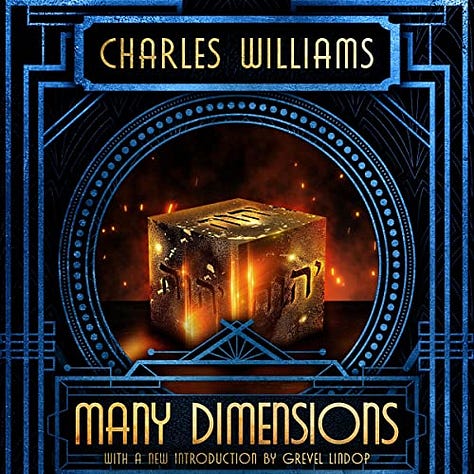
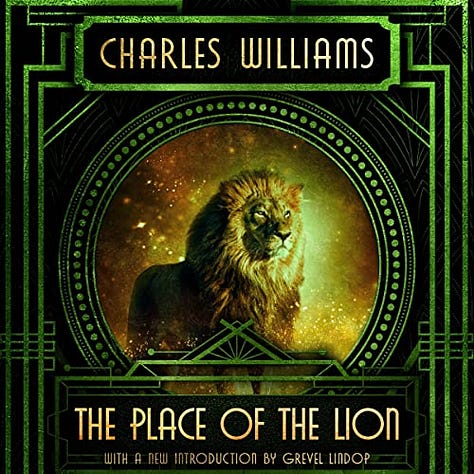




Supernatural Interruptions
Williams’s stories all turn on some sort of supernatural interruption. In the case of War in Heaven, it’s the chance discovery of the Holy Grail, long forgotten in a little hamlet parish under the care of an unassuming (and unknowing) archdeacon.
Many Dimensions carries over the same basic plot and even one character—the scheming archeologist Giles Tumulty—but this time the magical item is the philosopher’s stone, taken from the crown of King Solomon and which empowers its possessors to effect miraculous cures and travel through time, space, even other people’s thoughts.
In The Greater Trumps—probably my favorite of the bunch—the story turns on a rare and mysterious tarot deck and a game board with golden pieces possessing powers to, among other things, change the weather.


In all these stories, the supernatural element tests and proves the characters in the ensuing moral drama. Whatever powers these elements unlock equip and enable people to act more fully on their desires, either saving or damning them in the process.
Williams’s commitment to stressing the ordinary by means of the extraordinary allows for some remarkable heroes, many of whom are female. The hero of Many Dimensions is not Chief Justice Lord Arglay, but rather his secretary, Chloe Burnett. Likewise, in The Greater Trumps it’s unassuming Aunt Sybil who emerges as the true exemplar.
Even The Place of the Lion, which features more of the casual misogyny of the period, leaves room for Damaris Tighe to undertake a redemptive quest—to save the psychologically rattled friend of her fiancé.
The last two novels, Descent into Hell and All Hallows’ Eve, feature two of Williams’s strongest female leads, Pauline Anstruther and Lester Furnival.
Pauline, plagued by waking visions of her doppelgänger, receives a mercy from playwright Peter Stanhope who offers to mystically shoulder all the anxiety and fear associated with her burden. Finally free, Pauline returns the favor by shouldering the burden of a suicide who died at some point before the primary action of the novel begins.
In Lester’s case, she also dies just before the novel begins—in a freak plane accident. The rest of the novel follows her journey after death and her willingness to stand with a friend, still living, against a powerful magician named Simon Leclerc who, unbeknownst to the girl, is also her father. Another of Lester’s friends, Evelyn, who died with her in the accident, is given the same chance but chooses differently.
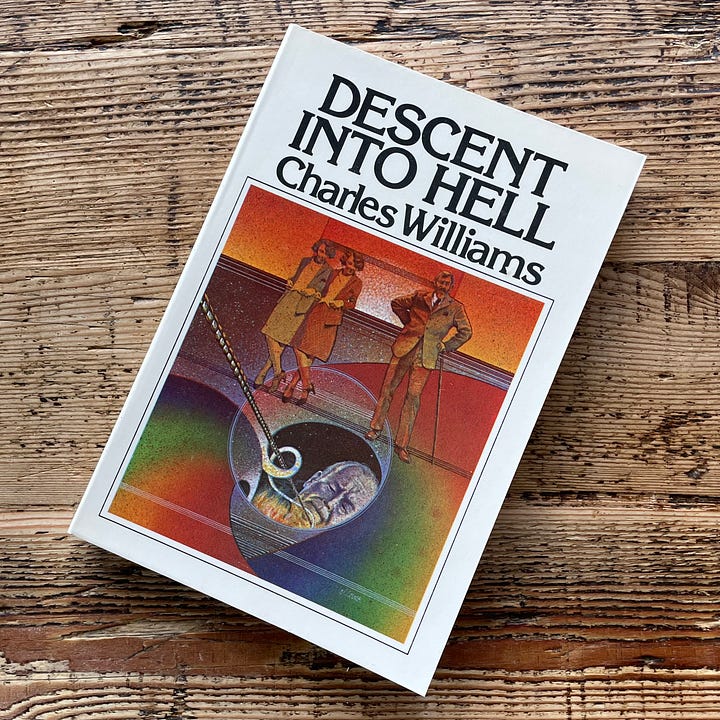

The Choices We Make
Williams had a way with villains. Of course there’s Tumulty and Gregory Persimmons, the occultist of War in Heaven. Then there’s Simon of All Hallows’ Eve, who functions like an antichrist figure.
Shadows of Ecstasy, which I finally experienced during my recent listening bender, also features an antichrist figure. But the ageless Nigel Considine isn’t simply evil. As he rallies the people of Africa against Europe, his anti-colonial position seems somewhat sympathetic. Characters are conflicted about his supposed virtues and vices for legitimate reasons.
Despite their supernatural strangeness, all of Williams’s novels create recognizable moral dilemmas that call characters to sacrifice their own interests, deal with reality as it is (not as they wish), and wrestle with the sliding grayscale of ethical choice in a complicated world. In some instances the choices are obvious and stark. Other times characters simply muddle through, oblivious to the moral demands of the moment.
Sometimes the price of that obliviousness is high. In Descent into Hell, the historian Lawrence Wentworth’s petty jealousies lead him to compromise his professionalism:
He was finding the answer to [rival historian] Aston Moffatt’s last published letter difficult, yet he was determined that Moffatt could not be right. He was beginning to twist the intention of the sentences in his authorities, preferring strange meanings and awkward constructions, adjusting evidence, manipulating words. In defense of his conclusion, he was willing to cheat in the evidence—a habit more usual to religious writers than to historical.
That’s just the beginning of Wentworth’s problems. Spurned by his love interest, he conjures a succubus who sees to his every whim while he turns so utterly in upon himself that he descends, as the title suggests, to hell. But Williams surprisingly implies the first transgression relates to the second.
Thus every book has the virtue of highlighting the existential peril into which we’ve been plunged by underlining the choices we make as tending toward either the embrace of grace or judgement. And the difference isn’t always dazzlingly clear. What’s more, the prudent choice of one can compensate for the lesser choices of many. So we find the goodness of Chloe Burnett and Aunt Sybil redeems more than themselves.
Perhaps that’s what drew Lewis to Williams.
The Sound of One’s Native Language
Lewis was so impressed by Williams, he invited him to join the Inklings, the group of writers and scholars who met to share their drafts over drinks. Members included others such as J.R.R. Tolkien and Owen Barfield.
For his part Williams tried inviting Lewis into his world, which included friendship with T.S. Eliot. Eliot became Williams’ publisher at Faber and Faber and was a big fan of his novels, which he characterized as “supernatural thrillers.” Unfortunately, Lewis and Eliot failed at friendship until long after Williams passed away (a story I tell here). They didn’t understand each other—but curiously they both understood Williams. He spoke their native language.
That wasn’t true for everyone. J.R.R. Tolkien never much enjoyed Williams’s novels and had mixed feelings about the man himself. Tolkien referred to Williams as his polar opposite and blamed Williams for creating distance between himself and Lewis. So, it’s safe to say he’s not for everyone.
Then again, who is?
In 1948 Time magazine referred to Williams as “one of the most gifted and influential Christian writers England has produced this century.“ After finally getting through all seven of the novels, I can say Williams still warrants attention despite his sometimes self-indulgent, abstracted prose and scandalous side dramas.
I’ll definitely be reading them again, especially since—amazingly enough—I received an old set of the cherished Eerdmans editions for Christmas. You can still find them out there if you look around. But there are also other options as well, including the audio editions I listened to earlier this month and a wonderfully well produced set of new hardcover editions published by The Charles Williams Library.
Thanks for reading! If you enjoyed this post, please hit the ❤️ below and share it with your friends.
Not a subscriber? Take a moment and sign up. It’s free for now, and I’ll send you my top-fifteen quotes about books and reading. Thanks again!


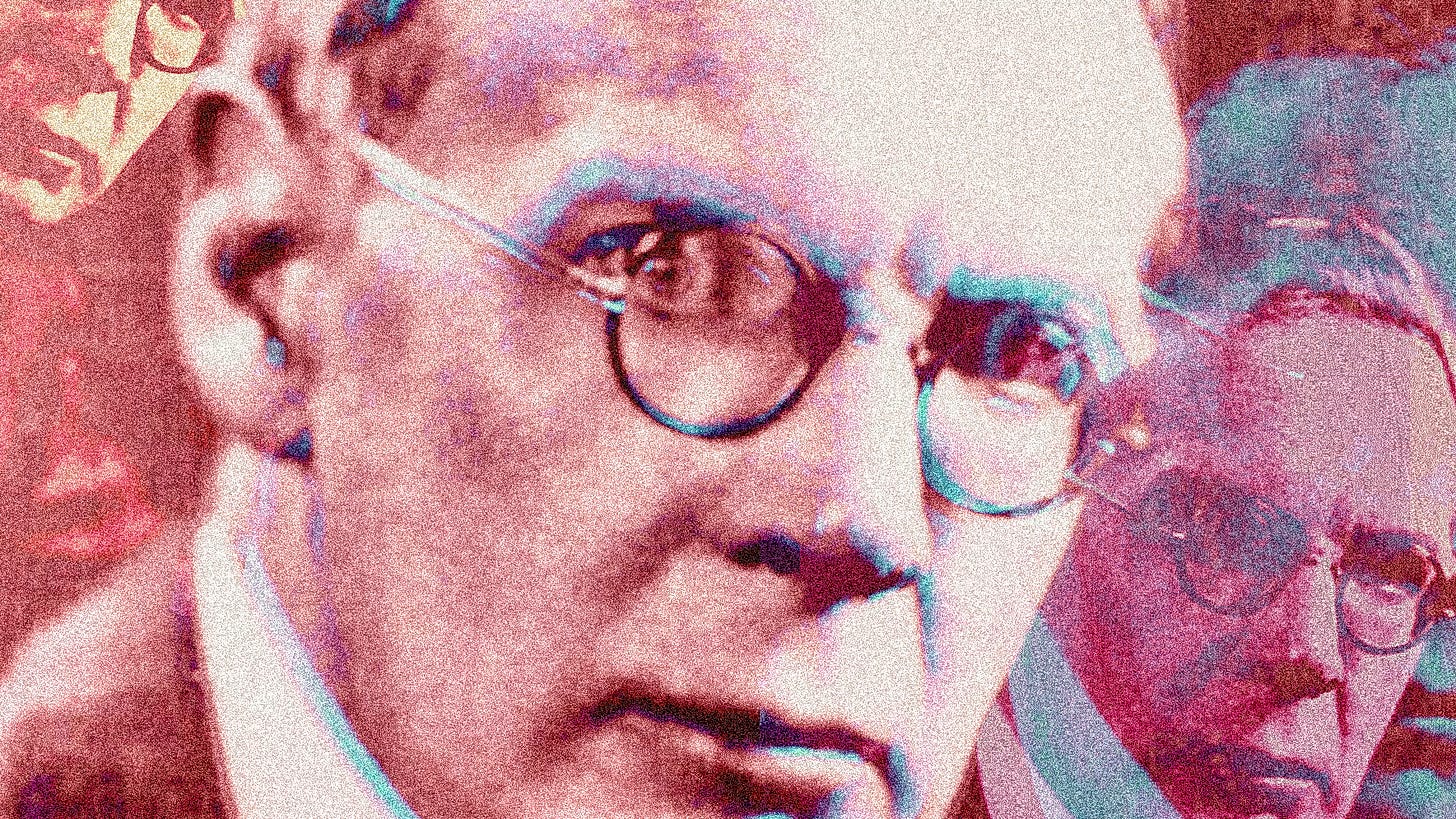
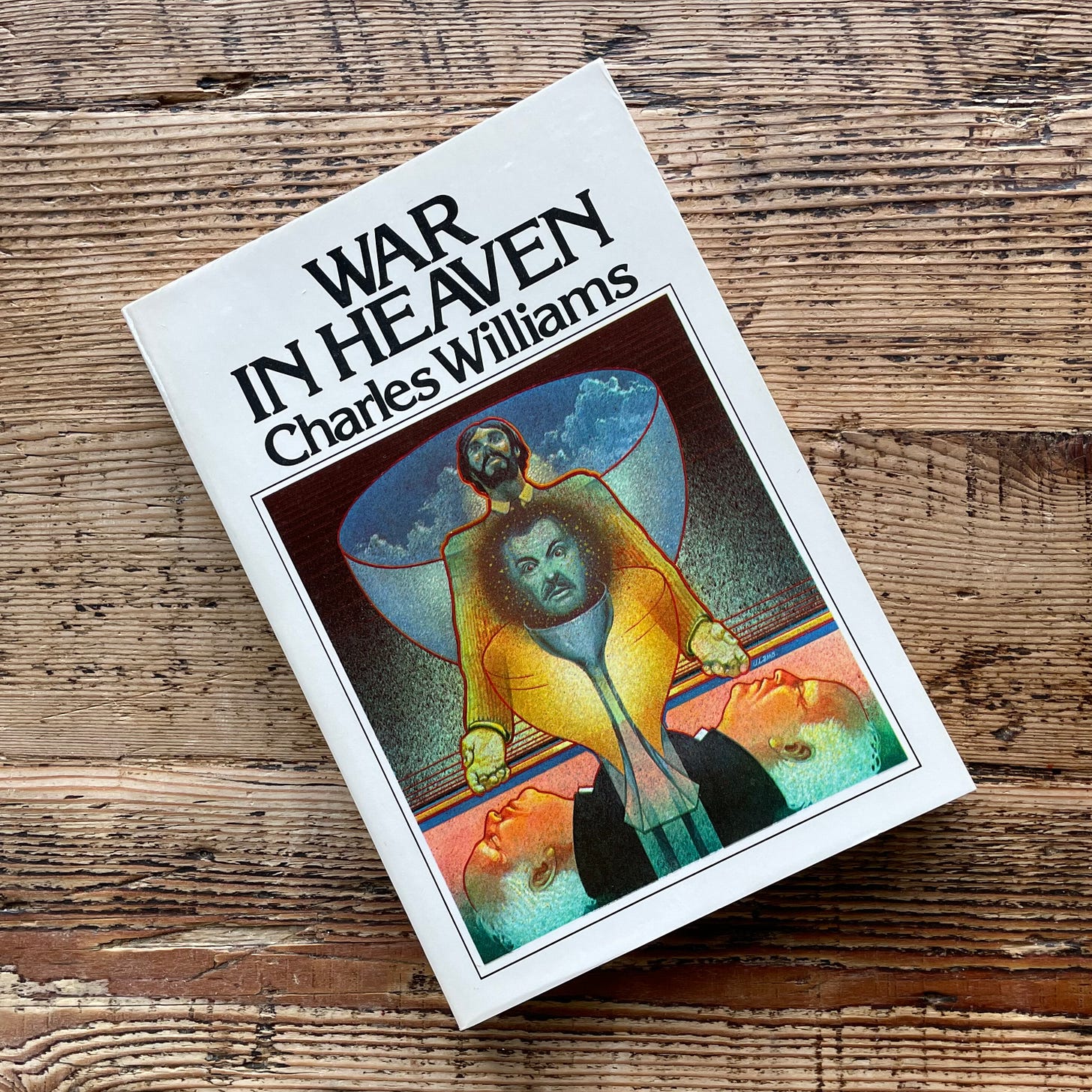
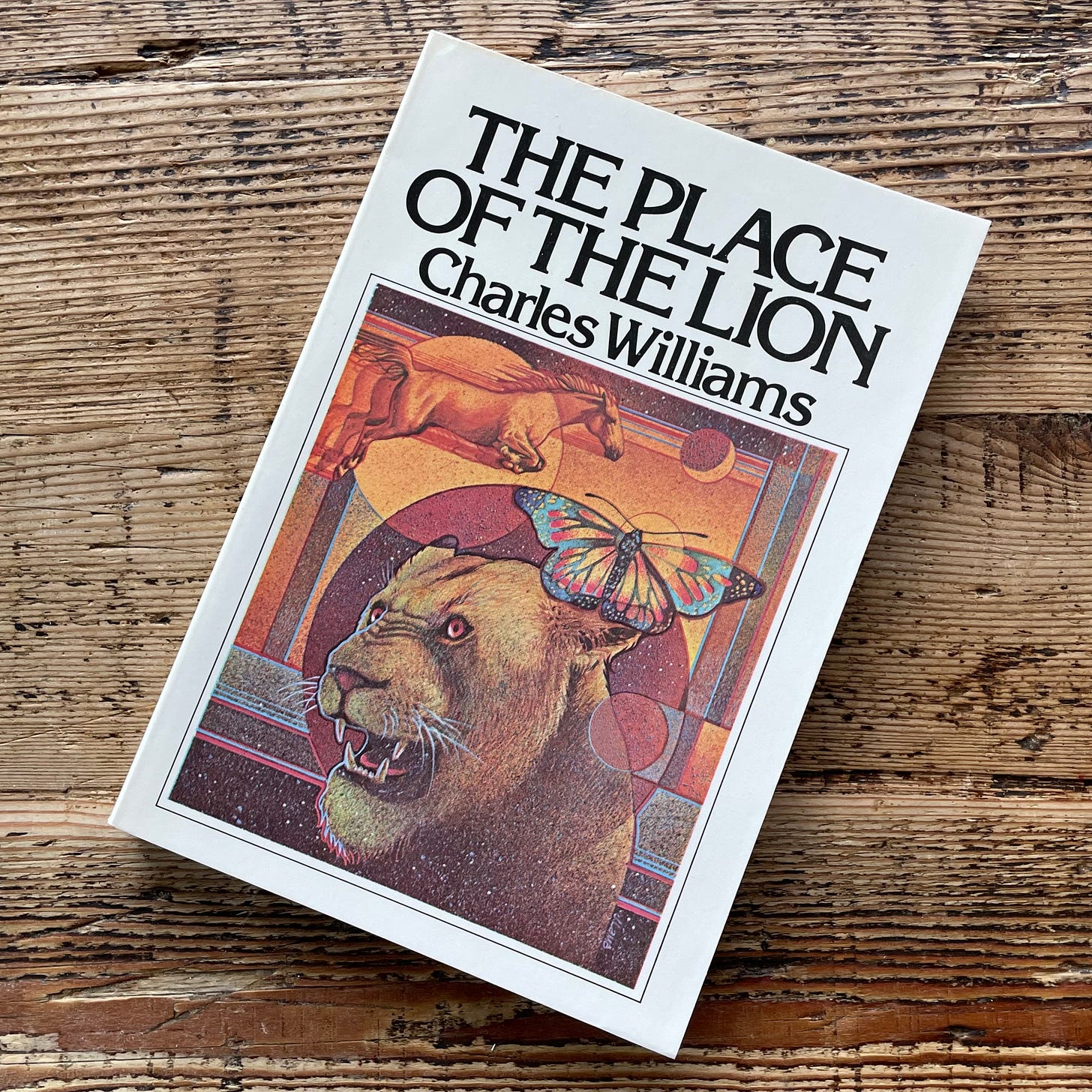


Williams is one of those Christian figures like Origen the Alexandrian who may be read with profit but must be read with discernment. My guess is that a significant element in his troubles was that he thought of himself as a Poet and that that somehow made him different from most other people, and that ordinary counsels of prudence applying to them didn't apply to him. Thus he indulged two things, an attraction to occultism and a kind of spiritual adultery. The occultism was involved in his presentation sometimes of Christianity as something with esoteric elements, and the spiritual adultery was terribly injurious to his marriage and, I suspect, his fatherhood vis-a-vis his son. That I have benefited from reading him for more than 50 years I don't doubt, but I also think he very much needed to make a clean breast of some things with a sturdy pastor or priest. He didn't, so far as I know from reading Grevel Lindop's biography, etc.
There's much enjoyable entertainment in some of his novels, and also I never read Descent into Hell without feeling like getting on my knees in prayer.
Joel, you have a way of convincing your readers to pick up all these fascinating books (even if they cannot possibly add anything more to their reading list...). Before Christmas I incredibly found a vintage boxed set of George McDonald fantasy stories, and will now be sure to keep my eyes open for Williams' when browsing at the used book store. Thanks for always supplying such fascinating details about the authors you introduce :)